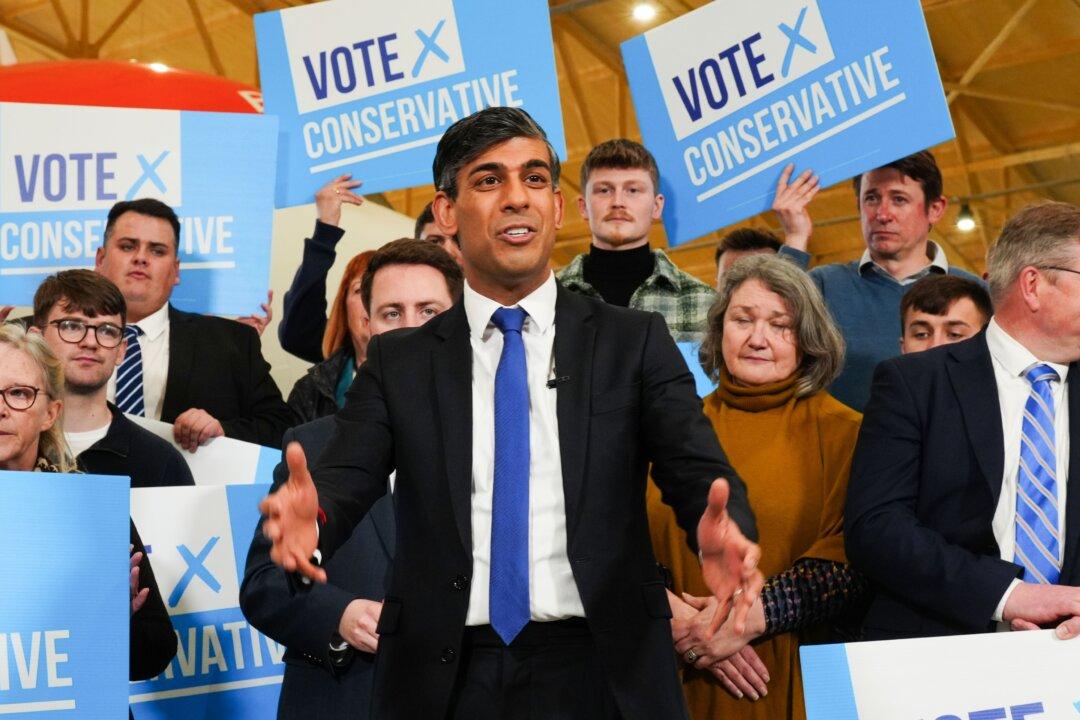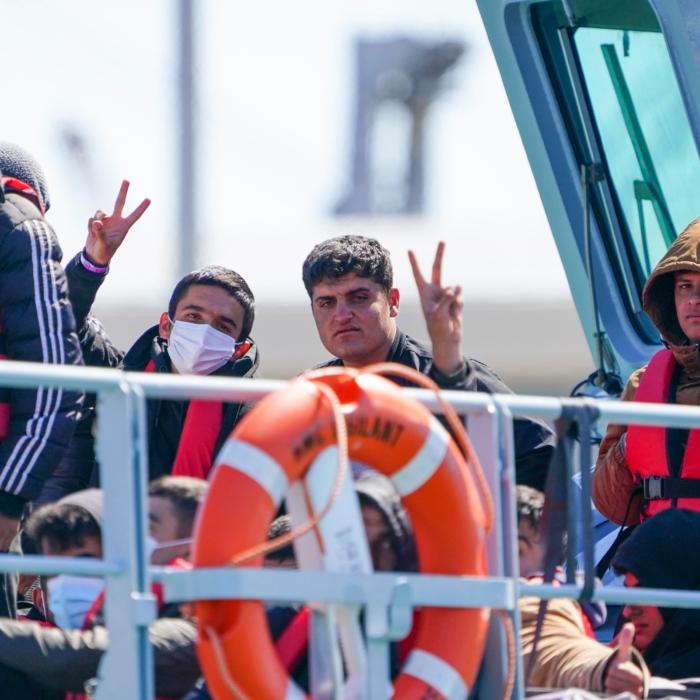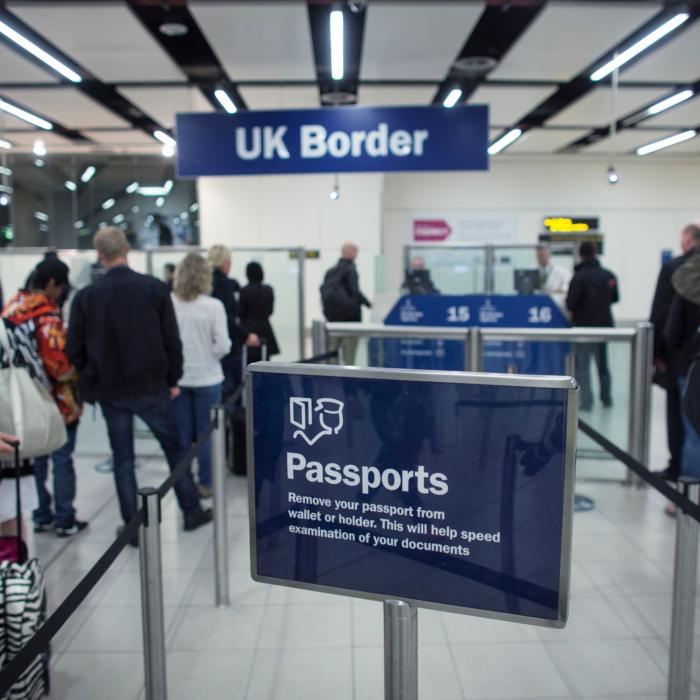The Conservative Party has pledged to put an annual cap on work and family visas to cut immigration, if it wins the July 4 election.
Proposals revealed on Monday would see MPs vote on the number of people to be allowed annually into the country, with the party saying it aims for levels to fall year-on-year over the next Parliament.
Temporary immigration routes, such as for seasonal agricultural workers, would not be affected by the cap.
Prime Minister Rishi Sunak said: “We have taken bold action to cut the number of people coming to this country. The plan is working but migration levels are still too high, so we are going further.”
Cap Recommended by Migration Advisory Committee
Under the proposals, ministers would ask the Migration Advisory Committee (MAC), an independent body that advises the government on immigration, to recommend an annual level which the government would then put to Parliament for a vote.The MAC would derive the cap after consulting with businesses, public services, local authorities, and the NHS. The MAC would also be instructed to consider the government’s objectives to bring down immigration.
When asked why the Conservatives have not put a number on the cap in visas, Home Secretary James Cleverly told “BBC Breakfast” that while legal immigration “has been too high over the last couple of years,” there are “benefits to migration.”
Mr. Cleverly continued that assigning the MAC the responsibility of assessing the costs and benefits “will make sure we properly balance both the numbers of people coming here and the benefit they bring, but also the cost, whether it’s school places, housing demand, health places, etc.”
Fixing ‘Skills Gap’ Will Bring Down Immigration: Labour
On Sunday, Ms. Cooper said her party’s immigration reforms would fix the “broken” system and that the party would fill the skills gap with homegrown talent.The shadow home secretary, who was meeting apprentices from gas distribution company SGN in London, said that the tripling of net immigration in the last five years had “been particularly driven by the big increase in work migration and in work visas.”
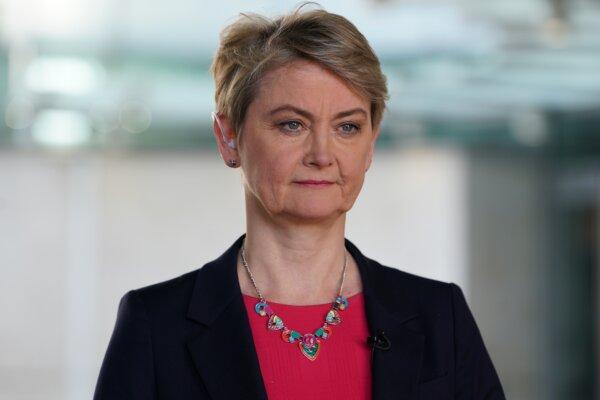
She said: “And we’ve just been talking to engineering apprentices—engineering apprenticeships have halved at the same time as visas have doubled. That shows you’ve got a system that’s broken.
“That’s why Labour’s setting out a practical plan to make sure that overseas recruitment is actually linked instead to the kind of training and the workforce plans that are needed; that will bring net migration down.”
‘Hire Brits First’
On Sunday, Labour Party leader Sir Keir Starmer vowed to cut net immigration, but would not commit to a level.Sir Keir said that Labour would make sure that British businesses are supported to hire British workers first, adding that he would make sectors which apply for foreign work visas train British workers first to do the jobs they needed.
He also said he will “ban bad bosses”—like those who breach labour market rules, including underpaying employees—from recruiting overseas workers.
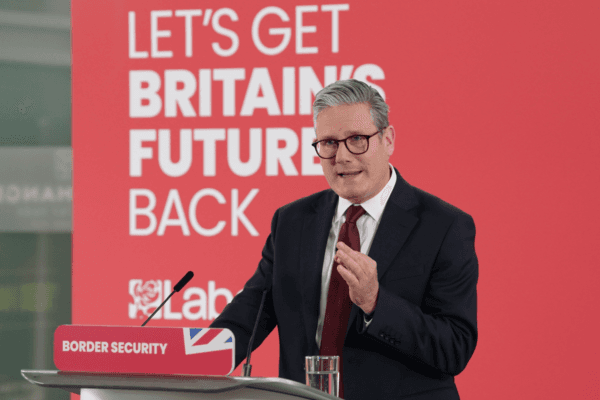
Legal and illegal immigration became prominent policy topics even before Mr. Sunak called the general election late last month.
The Labour leader proposed creating a new multi-agency Border Security Command to tackle people smuggling gangs bringing illegal immigrants across the channel.
The Border Security Command would be supported by hundreds of police officers, intelligence agents, and specialist investigators from agencies including MI5, the National Crime Agency, and Border Force.
